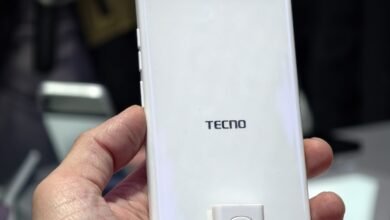
The African Union Development Agency-NEPAD (AUDA-NEPAD) has launched a groundbreaking draft strategic framework that could revolutionize education across Africa. The African EdTech 2030: Vision, Plan and Policy framework represents an ambitious roadmap to position the continent as a global leader in mobile-first, locally-relevant digital learning by 2030.
A Continental Vision for Educational Transformation
The comprehensive framework, unveiled during the STEMtastic Adventures! Africa symposium in Nairobi on July 22, 2025, envisions a future where every African learner has access to locally developed digital education. Dr. Barbara Glover, Program Officer at AUDA-NEPAD, emphasized that the framework aims to “catalyse an accelerated transformation in education for the continent by leveraging local innovation and leadership in EdTech to make Africa’s education systems more inclusive, resilient and innovation-driven”.
The vision aligns strategically with key continental frameworks including Agenda 2063, STISA-2034, CESA 2026-2035, and the AU Digital Transformation Strategy. This coordinated approach builds on successful initiatives like Kenya’s partnership with Estonia to transform education digitally and the extensive EdTech fellowship programs empowering female-led startups.
Africa’s Unique Leapfrogging Opportunity
The framework capitalizes on Africa’s unique position to bypass traditional educational infrastructure constraints. Just as mobile money succeeded in Africa before other regions due to limited traditional banking infrastructure, digital education can surpass conventional classroom-based systems because the continent isn’t constrained by legacy educational infrastructure.
This approach leverages the continent’s mobile-first advantage, with smartphone ownership among teachers exceeding 90% in South Africa and ranging between 30-65% in Ghana, Nigeria, and Kenya. These statistics demonstrate Africa’s readiness for mobile-first educational interventions that other continents are still developing.
The strategy echoes successful digital transformation initiatives across the continent, including major investments in connecting schools to the internet and comprehensive teacher training programs in AI and digital skills.
Addressing Critical Educational Challenges
The Vision & Plan responds to urgent continental challenges that demand immediate attention. With Africa’s youthful population—over 60% under age 25—projected to reach 2.5 billion by 2050, quality education becomes critical for sustained growth.
Current barriers remain significant: an estimated 30 million primary-age children in Sub-Saharan Africa remain out of school, while Africa will need 17 million additional teachers by 2030 just to maintain universal access. Only approximately 40% of African primary schools have internet access, and UNICEF reports that approximately 75% of African youth lack digital skills required by modern economies.
These challenges align with findings from recent reports showing that African countries must scale EdTech with offline innovation, where some countries have as few as 2% of primary schools connected to the internet.
Strategic Framework and Implementation
The African EdTech 2030 Vision & Plan advances six strategic objectives that address the continent’s educational transformation comprehensively:
- Access and Infrastructure expands digital access via low-cost devices, solar solutions, and offline-first technologies, building on existing smartphone penetration among educators.
- Courseware Development promotes locally made, curriculum-aligned, multilingual digital courseware, including successful examples such as Senegal’s Wolof-language XamXam platform serving 1.2 million users.
- Teacher Capacity focuses on upskilling teachers in digital pedagogy, content curation, and data use with specific emphasis on fostering positive attitudes and building confidence in using technology for learning. This aligns with ongoing initiatives like Africa AI Week 2025, which empowered 700 educators with AI skills.
- Interoperability and Standards institutionalizes vendor-neutral interoperability frameworks through AUDA-NEPAD’s standards-based vendor-neutral EdTech policy framework.
- Policy and Governance supports data privacy, equitable funding, and regulatory harmonization across the continent.
- Data and Research generates and uses robust data and research to guide policy, monitor learning outcomes, and ensure continuous improvement.
Implementation occurs through three strategic phases: Foundation building (2024-2026) develops continental policy frameworks enabling cross-border content sharing and establishes technical standards. System integration (2026-2028) scales interoperable Digital Public Infrastructure, enabling single sign-on access to multiple educational applications while deploying regionally developed courseware. Consolidation and export (2029-2030) positions Africa as a global EdTech exporter while launching the Pan-African EdTech Innovation and Research Hub.
Stakeholder Mobilization and Sustainability
The framework establishes clear roles for all stakeholders, creating accountability where needed. Governments lead policy formulation, funding, and alignment with national curricula, while regional bodies coordinate standards, research, and shared platforms. Development partners provide catalytic funding and technical expertise, while the private sector develops infrastructure, devices, and platforms suited to African contexts.
NGOs and foundations pilot models, build capacity, and conduct impact assessments, while communities advocate for EdTech and support student engagement. This comprehensive approach builds on successful partnerships like the Mastercard Foundation’s support for EdTech innovation and strategic collaborations in digital skills development.
Sustainability relies on blended finance models combining grants, equity, and subsidies, Digital Public Infrastructure investment promoting shared, scalable infrastructure, and partnerships with organizations such as GPE, UNICEF, and UNESCO to enable contextualized alignment with global priorities.
Through coordinated policy, local innovation, and equitable infrastructure, John Kimotho emphasized that “Africa can leapfrog legacy education barriers and build a globally competitive digital learning ecosystem” by learning from frontrunners like Kenya, Rwanda, and Mauritius and sharing lessons across borders.





